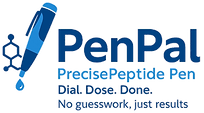A potent anti-inflammatory peptide that has shown promise in a number of disease conditions. The most active research is in the treatment of inflammatory bowel disease where the peptide has showed substantial promise. Research in wound healing also reveals that KPV and other alpha-MSH derivatives may offer a host of benefits that speed wound healing, reduce infection, fight inflammation, and lead to better cosmetic results. KPV and similar peptides could become mainstays not just in wound healing, but in scar reduction following surgery. KPV, a tripeptide composed of lysine, proline, and valine, is derived from the alpha-melanocyte-stimulating hormone (α-MSH) and has shown potential in various health applications due to its anti-inflammatory, antimicrobial, and healing properties. Here’s a concise overview of its key benefits based on available research:
- Anti-Inflammatory Effects: KPV is highly effective at reducing inflammation by inhibiting pro-inflammatory pathways, such as NF-kappaB and MAP kinase, and decreasing pro-inflammatory cytokine production. This makes it a promising therapy for conditions like inflammatory bowel disease (IBD), arthritis, and systemic inflammation. Studies in mice have shown it reduces inflammation in colitis models, improving symptoms and promoting mucosal healing.
- Gut Health: KPV is particularly noted for its role in treating gastrointestinal conditions like IBD, Crohn’s disease, and ulcerative colitis. It works by entering intestinal cells via the PepT1 transporter, reducing inflammation and promoting mucosal repair, which can alleviate symptoms like pain and weight loss. Oral administration has been effective in animal studies for reducing colitis severity.
- Wound Healing: KPV accelerates wound healing by modulating inflammation, enhancing tissue repair, and reducing infection risk. It has shown promise in improving outcomes for skin wounds, burns, and surgical scars by minimizing scarring and regulating collagen metabolism. Its antimicrobial properties also help combat pathogens like Staphylococcus aureus and Candida albicans.
- Skin Health: Due to its anti-inflammatory and antimicrobial effects, KPV may benefit skin conditions such as psoriasis, acne, and eczema. It reduces symptoms like redness, itchiness, and inflammation, making it a potential addition to dermatological treatments.
- Pain Management: KPV’s ability to reduce inflammation may help alleviate chronic pain associated with conditions like arthritis or muscle soreness, offering a natural alternative to traditional pain medications.




